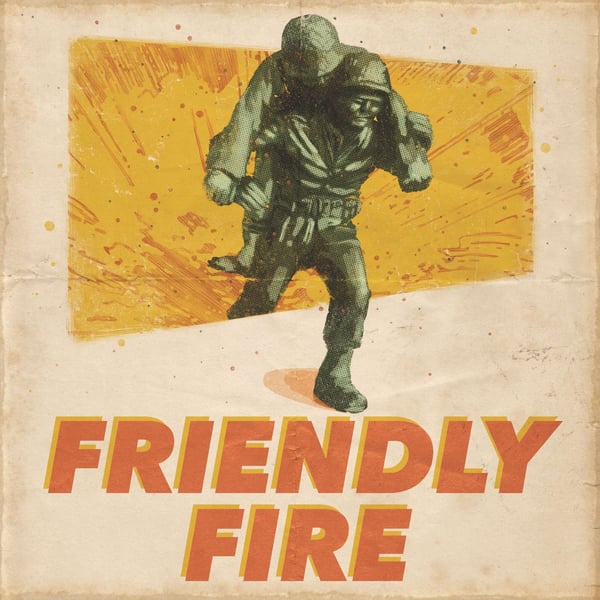Their Finest (2016)
Friendly Fire
Uxbridge-Shimoda LLC
4.8 • 1.5K Ratings
🗓️ 5 June 2020
⏱️ 69 minutes
🧾️ Download transcript
Summary
Transcript
Click on a timestamp to play from that location
| 0:00.0 | Any podcast that covered a randomized selection of movies from throughout the history of movies |
| 0:06.8 | would have to spend time wrestling with the ways that values have changed. |
| 0:11.4 | They've changed dramatically over the last hundred years and even more |
| 0:15.8 | dramatically over the last 10. So even if Friendly Fire focused on courtroom dramas or domestic |
| 0:21.3 | comedies or movies where even briefly kids were shown |
| 0:24.6 | playing marbles, the hosts would end up talking about gender relations and |
| 0:28.9 | representation. War movies are about fighting, about enemies and politics and conflict between nations, |
| 0:35.8 | and as such, we are always on the lookout for how well or poorly they do depicting peoples of nationalities, races, and religions other than those of the filmmakers themselves. |
| 0:46.0 | It's a major way we evaluate films, and we pay special attention to the women in these films because they're comparatively rare, they're frequently on the receiving |
| 0:55.5 | end of the worst kinds of violence depicted often only in silhouette or implication, and because |
| 1:02.1 | we're looking for validation of the contemporary idea that women |
| 1:05.3 | of the recent past were disenfranchised and stateless beings held captive by an unchallenged |
| 1:10.6 | patriarchy. |
| 1:11.6 | Interestingly, we've not found that to be universally the case. |
| 1:16.0 | Women are comparatively rare, and victims of unspeakable violence, yes, but we have been surprised to find so many strong female characters depicted as wise or |
| 1:25.7 | valiant, full of agency, quick-witted, and no patsies. |
| 1:30.0 | They're taken seriously by the films. |
| 1:31.6 | The male characters seek their approval and alter their choices accordingly, |
| 1:36.0 | and although they're often two-dimensional virtuous, |
| 1:39.4 | they aren't always uncomplicated. |
| 1:41.6 | The cameras pan away when the shooting starts, often not returning to them |
| 1:45.9 | until the end, but in most cases they weren't just knitting. They were nursing or |
... |
Please login to see the full transcript.
Disclaimer: The podcast and artwork embedded on this page are from Uxbridge-Shimoda LLC, and are the property of its owner and not affiliated with or endorsed by Tapesearch.
Generated transcripts are the property of Uxbridge-Shimoda LLC and are distributed freely under the Fair Use doctrine. Transcripts generated by Tapesearch are not guaranteed to be accurate.
Copyright © Tapesearch 2025.

